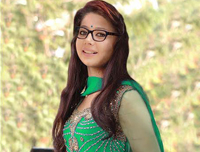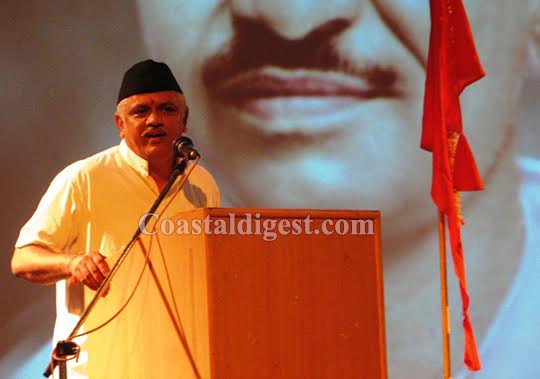A majority of people in Karnataka weren't even aware of the existence of apower centre' called B L Santhosh until the former chief minister B S Yeddyurappa recently broke his long silence and unhesitatingly held the former responsible for the dissidence currently plaguing the state unit of the Bharatiya Janata Party. However, among the BJP circles this RSS stalwart has been regarded as akingmaker' andpowerbroker' for years.
However, among the BJP circles this RSS stalwart has been regarded as akingmaker' andpowerbroker' for years.

Hailing from a small town in the coastal district of Udupi, Santhosh is not as outspoken as Dr Prabhakar Bhat of Kalladka, who is dubbed as the unofficial “supreme commander of Dakshina Kannada”. Those who know Santhosh closely say that his brain works quicker than his tongue. Though he stays aloof fromself-promotion' andvisible political activities', BJP heavyweights at the Centre never took his “marg darshan” lightly in recent years. Besides, he enjoys the backing of union minister Ananth Kumar and opposition leader in the state legislative council K S Eshwarappa, the most powerfulupper caste' andlower caste' leaders of the BJP in this south Indian state respectively.
Openly accused by Yeddyurappa of using Eshwarappa as a pawn to engineer rebellion against the former, Sonthosh did not lose his cool in the public. “I won't make any comment on the current situation of BJP in Karnataka. Those who are supposed to take action will intervene,” was his immediate response. According to political pundits Sonthosh has exhibited both thediscipline' of RSS andpolitical maturity' in his answer. What happened next? BJP chief Amit Shah equally penalized both Yeddyurappa and Eshwarappa factions by sacking two office-bearers from each faction after a discussion with the party's Karnataka in-charge Muralidhar Rao. If sources are to be believed, Santhosh too wanted the same — a temporary solution.
Is Santhosh an ambitious like Yogi Adityanath of Uttar Pradesh? While some observe that Santhosh has nursed CM ambitions himself and adopted “wait and watch” formula, others see him as a selfless saffronist, who is striving to strengthen the future of BJP by keeping “selfish leaders” away from the key posts. Supporters of Yeddyurappa have also alleged that Santhosh is trying to replace the Lingayat strongman as the state BJP chief and the party's chief ministerial candidate.
In fact Santhosh personally knows Yeddyurappa since 2005 when the former began working in Shivamoga as an RSS nominee and the BJP Organising Secretary during Lok Sabha by election. He first locked horns with Yeddyurappa when the latter became the south India's first BJP chief minister. One of the main reasons for this development, according to a few BJP leaders, is that Yeddyurappa chose his caste over the party, and thereby weakened the latter. Besides, Yeddyurappa gave priority to his female confidante over the RSS veterans, and thereby damaged the morale of the latter. Massive corruption allegations against Yedduyrappa was a golden opportunity for the RSS to force him step down as the chief minister in July 2011 three years after he assumed the power. When the party high command refused to reinstate him as chief minister after a year, Yeddyurappa had briefly quit the party and floated Karnataka Janata Party, with the sole intention of teaching a lesson to the BJP and RSS. This has remained as a permanent blot on Yeddyurappa's image in BJP.
Nevertheless, a fresh outburst of dissidence in Karnataka BJP cannot be ruled out as both the warring factions enjoy the support of their respective communities. 74-year-old Yeddyurappa has remained the undisputed leader of Lingayat community, which has been playing a decisive role in Karnataka politics for past six decades, while Eshwarappa is the BJP's powerful pawn to bag the votes of Kuruba community, which has a population of around 45 lakhs in the state. In future, the party high command may opt for a major surgery to end the infighting in its Karnataka unit. In such a situation, Amit Shah many not hesitate to spring a surprise and roil all caste calculations by asking a man with brains (read Brahmin) to formally lead the party's state unit.




Comments
Add new comment